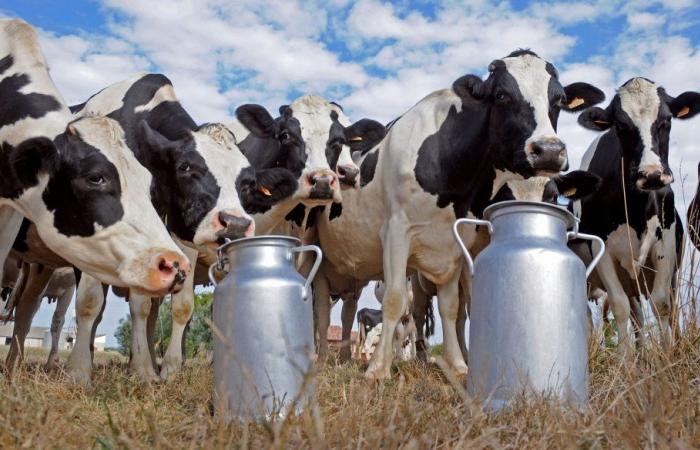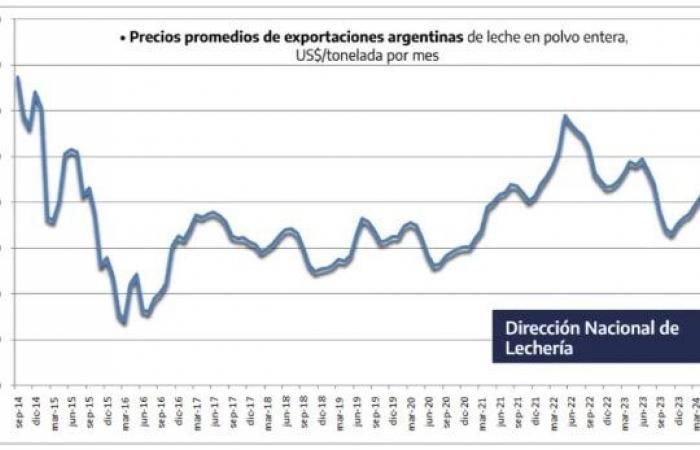Based on a series of domestic factors and those linked to foreign trade, Jose Quintana -director of the consulting firm Economía Láctea- estimated that the activity of the dairy In Argentina it will face 2025 with a favorable wind.
Internally, he recognized that from the appreciation of the Argentine pesoa favorable scenario was generated for industries to market their production in Argentina.
“Usually, the domestic market allows us to pay better prices than exports in autumn and winter, but the situation in spring usually reverses due to the greater seasonal supply of milk”commented the analyst, who is also a member of CREA Tambero Ameghino Villegas, from the Western Region.
And he added: “However, this year that did not happen and “The domestic market continues to be more competitive than exports.”.
THE DAIRY PANORAMA
Official numbers confirm this trend. The latest data available from the Argentine Integrated Dairy Management System (Siglea) estimated that in September, the average price of milk was $426.1 per liter, equivalent to US$ 0.43 per ton.
In the case of the industry linked to powdered milkin that month I could pay between US$ 0.39 to 0.40 per liter, for an FOB export value of US$ 3,800 and 3,900 per ton, respectively.
“In addition to the shortage of milk – a factor that continues to be a determining factor in price formation – it is also observed that some export industries are not willing to lose external customers regardless of how the business numbers are; “That represents a structural change,” he commented. Quintana.
In this context, he anticipated a moderate recovery in milk production by 2025, similar to the levels of 2023. According to the Argentine Dairy Chain Observatory (OCLA), in that year national production accumulated 11,325.6 million liters
“As for the projection of domestic demand, If the national government’s economic program maintains its course, the process of progressive recovery should continue of consumption,” summarized the analyst.
THE EXTERNAL FACTOR
With respect to external markets, Quintana considered that milk powder values remain firm, while demand is reconfigured depending on the geopolitical context.
“New Zealand “It is experiencing problems exporting to Algeria because, due to the current conflicts in the Middle East, freight insurance increased significantly for shipments that must cross the Suez Canal,” he explained.
This scenario favors the national industry, which is currently exporting a greater volume of milk powder to Algeria, the second most important market for the country after Brazil.
At the regional level, the production of leche It remains limited based on demand requirements and at the moment, there is no data that allows us to project a substantial recovery in supply. “Dairy purchases by Brazil“They remain firm and Mercosur export prices remain higher than those in Oceania,” he concluded.







